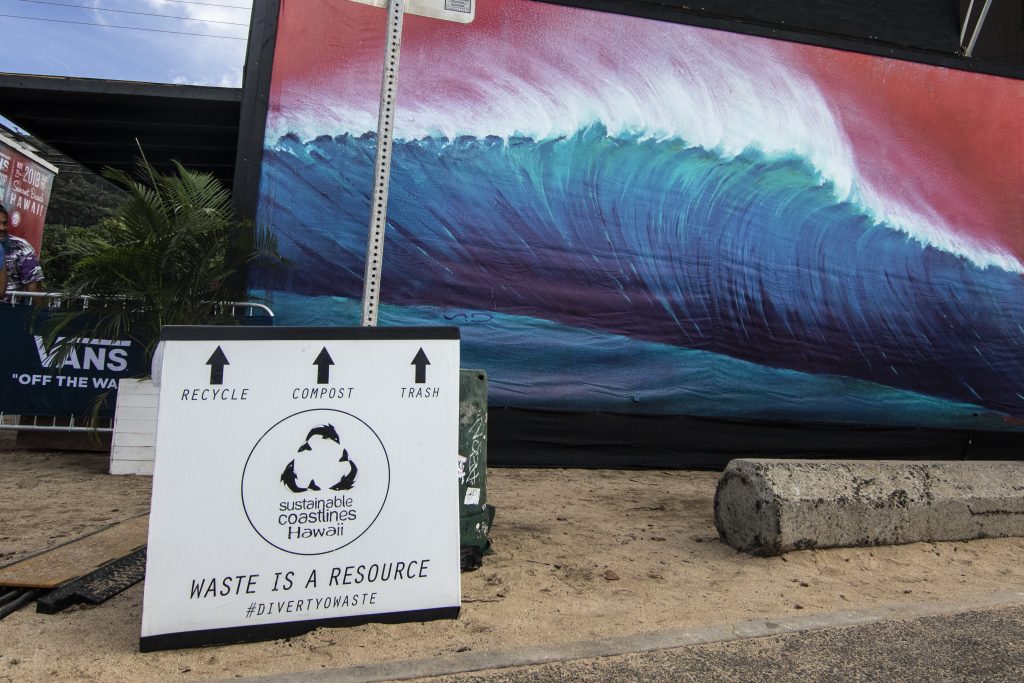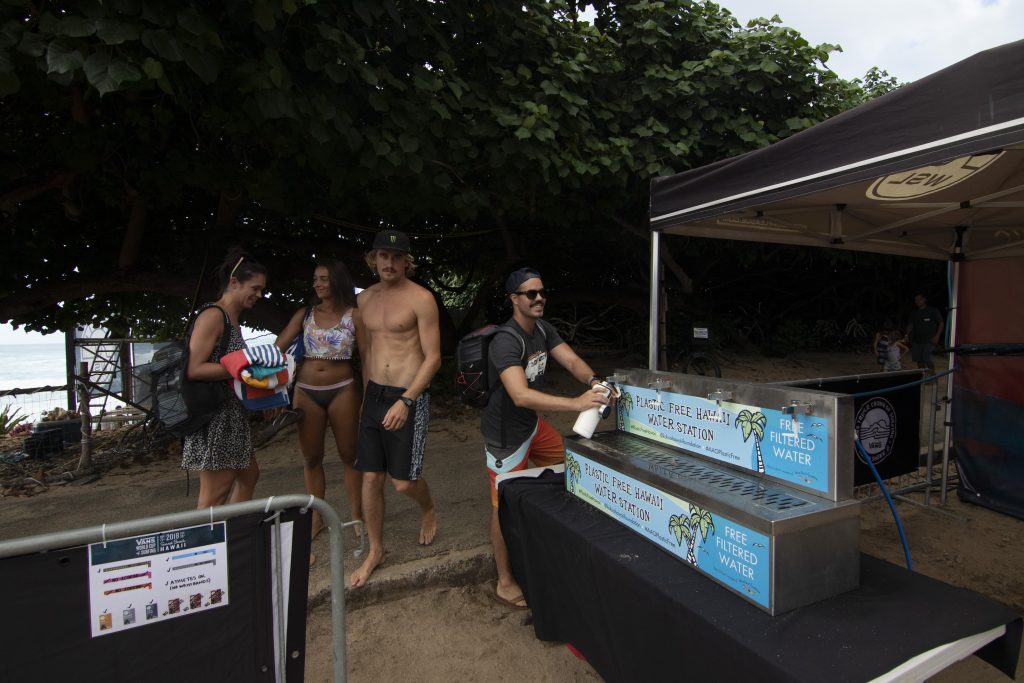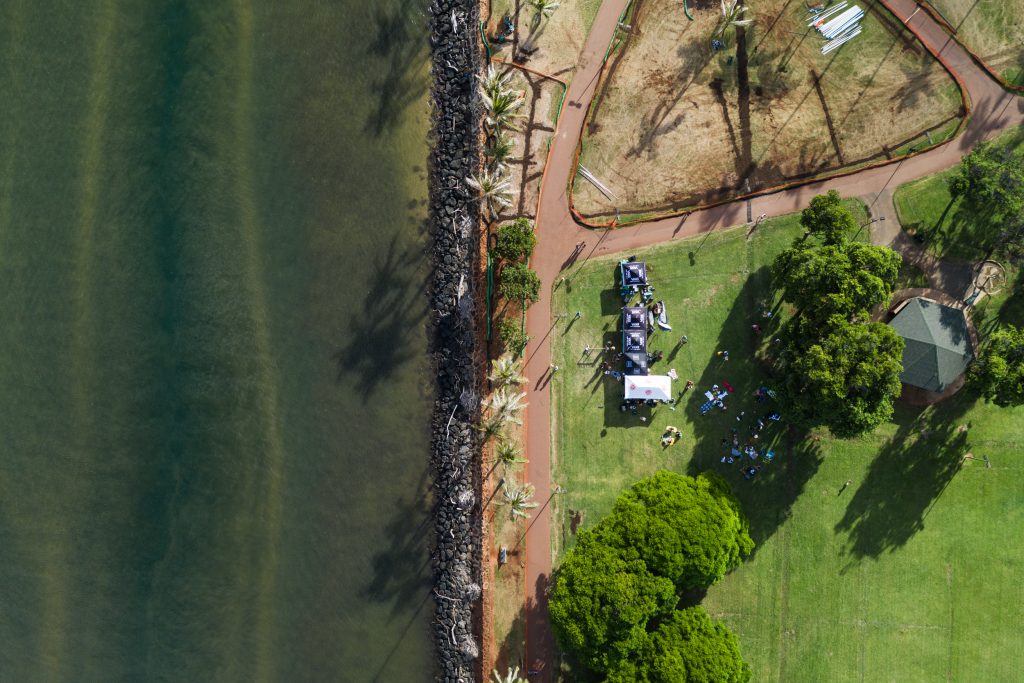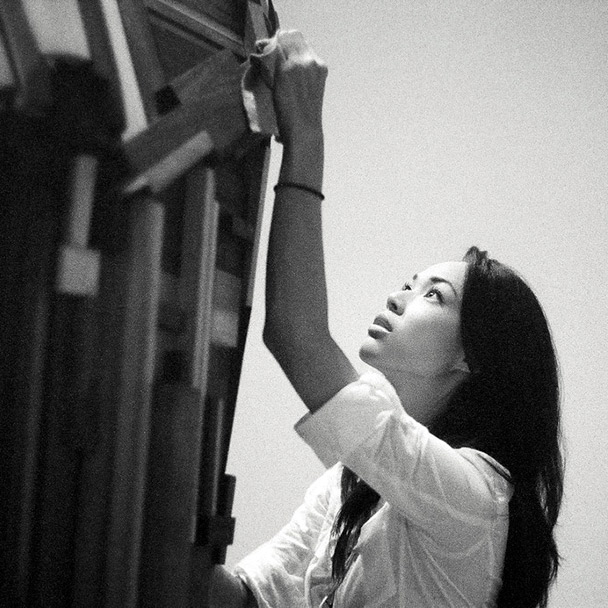Vans Sets the Industry Standard in Sustainability for their World Cup of Surfing
From a Sustainable Coastlines Hawaii partnership to less public efforts at keeping beaches clean

Walking along the Kaʻena Point Trail along the northwestern most point of Oahu is a beautiful sight—so long as you don’t look down. For when you do, you’ll find nearly endless stretches of bottle caps, disposable razors, toothbrushes and various shards of other plastics. Seeing the overwhelming and seemingly ordered fashion with which they rest, just feet from the waves, it’s as though they were placed there. Of course, they weren’t. The effects of human waste on the environment are perhaps never more apparent than here—a spot largely devoid of human beings, but littered with our imprint.
It doesn’t get much better farther out. In fact, when Benoît “Ben” Lecomte reached Oahu on 10 December after a six-month swim from Japan to Hawaii, he reported at times seeing one piece of plastic every three minutes along his journey. “On average we find around 100 pieces every half-an-hour tow of the net we use to collect the samples,” Research Manager Tyral Dalitz wrote in a blog post detailing the journey.

Sustainable Coastlines Hawaii, a grassroots organization co-founded in 2010 by Kahi Pacarro, has made a mission of not just cleaning up the island’s beaches, but educating people on how to use less—and how easy this effort can be. “We realized that our beach clean-ups despite the fact that we would do them with a couple hundred sometimes over a thousand people at a time, if we came back just a few weeks later, sometimes a month, all of that trash was back,” Pacarro says during a walking tour of Waihuena Farms, one of the sites where they send their compostable materials to be turned into fertilizer. “We realized that clean beaches start far from them. It comes down to using less and knowing where your food came from.”

For the six years in a row, Vans has partnered with Sustainable Coastlines Hawaii to make sure the brand’s footprint on O’ahu during their annual Vans Triple Crown is not just economically meaningful (the event pumps over $25 million into the local economy, according to the World Surf League), but environmentally solvent. The brand largely known for skateboarding apparel began the partnership with a goal to help in the effort of waste diversion and to bolster the message of inspiring mindfulness with regard to people’s consumption. “Ideally we’d be put out of business because the beaches are clean,” Pacarro half jokes.
In the years since the partnership began Sustainable Coastlines has jumped from a 29% waste diversion rate in 2003 to 70% in 2017. It’s expected to rise even higher when 2018’s totals are calculated. There’s less visible efforts Vans has made, like deploying filling station throughout in an effort to eradicate plastic water bottles, not allowing single-use plastic utensils on-site and using 60% biodiesel to run the event’s generators and using solar panels to operate the merch tent.

Perhaps the most intriguing of their efforts is what happens when the non-locals leave. The Vans team looks at who flew in for the event, they estimate their carbon footprint based on where they flew in from and how long they stayed at a hotel and they buy certified carbon credits to offset their footprint and fund projects that preserve rainforests and help Brazilian communities switch to biomass in order to power their homes.
It’s important to remember that cynicism is really detrimental to change
“I think it’s important to remember that cynicism is really detrimental to change and to be mindful not to indulge in it on a personal level,” Kim Matsoukas, Senior Manager, Sustainability and Social Responsibility at Vans, says. “I do that by looking at the big picture—the changes we are making today may seem insignificant but, over time and as more people get involved, I know they make a difference. I’ve also found that it’s important to celebrate wins, no matter how small, and to tell the story to inspire others.”

For Kimi Werner, a champion spear-fisher, this message of conservation comes from her great love of the ocean. Werner got into diving before it was a sport. “It was a lifestyle, and not a lifestyle choice, but a necessity,” she says during lunch at Pūpūkea-Paumalu Forest Reserve. For Werner, it’s about motivating people not just to see the environment, but to be a part of it, and hopefully in doing so, to fall in love with it as she has.

“One thing that all humans crave is a sense of belonging. We’re all animals. We all come from nature. I know the way that society raises us we forget that sometimes but I think that we all can find a sense of belonging there,” she concludes, “And sometimes we can search for it in job titles or cars or materials things but it’s not going to fulfill us the same way that connecting with this natural world will.”
Images courtesy of Vans












